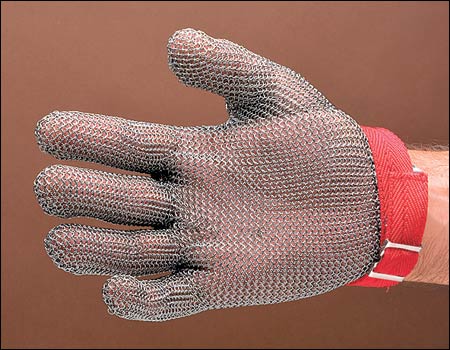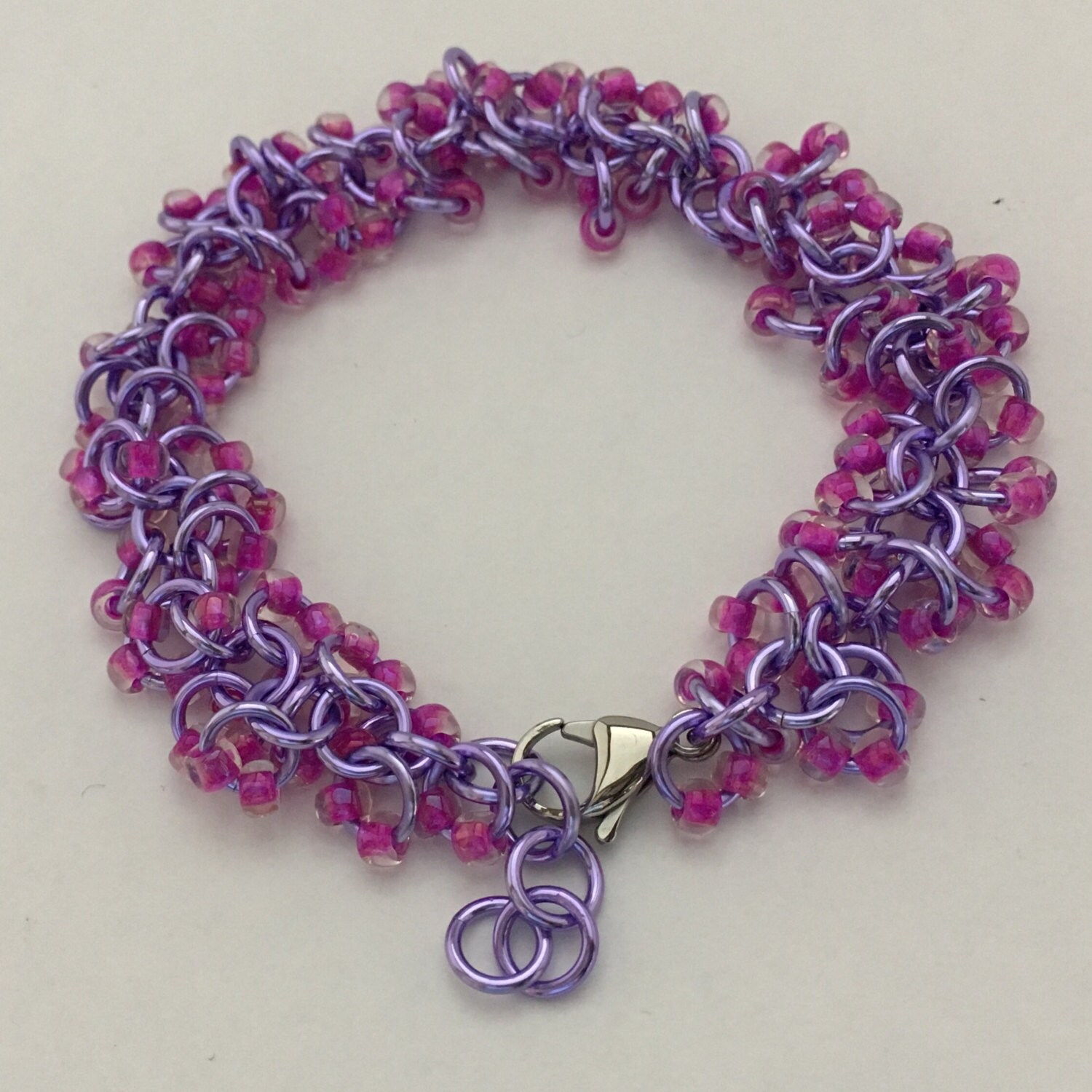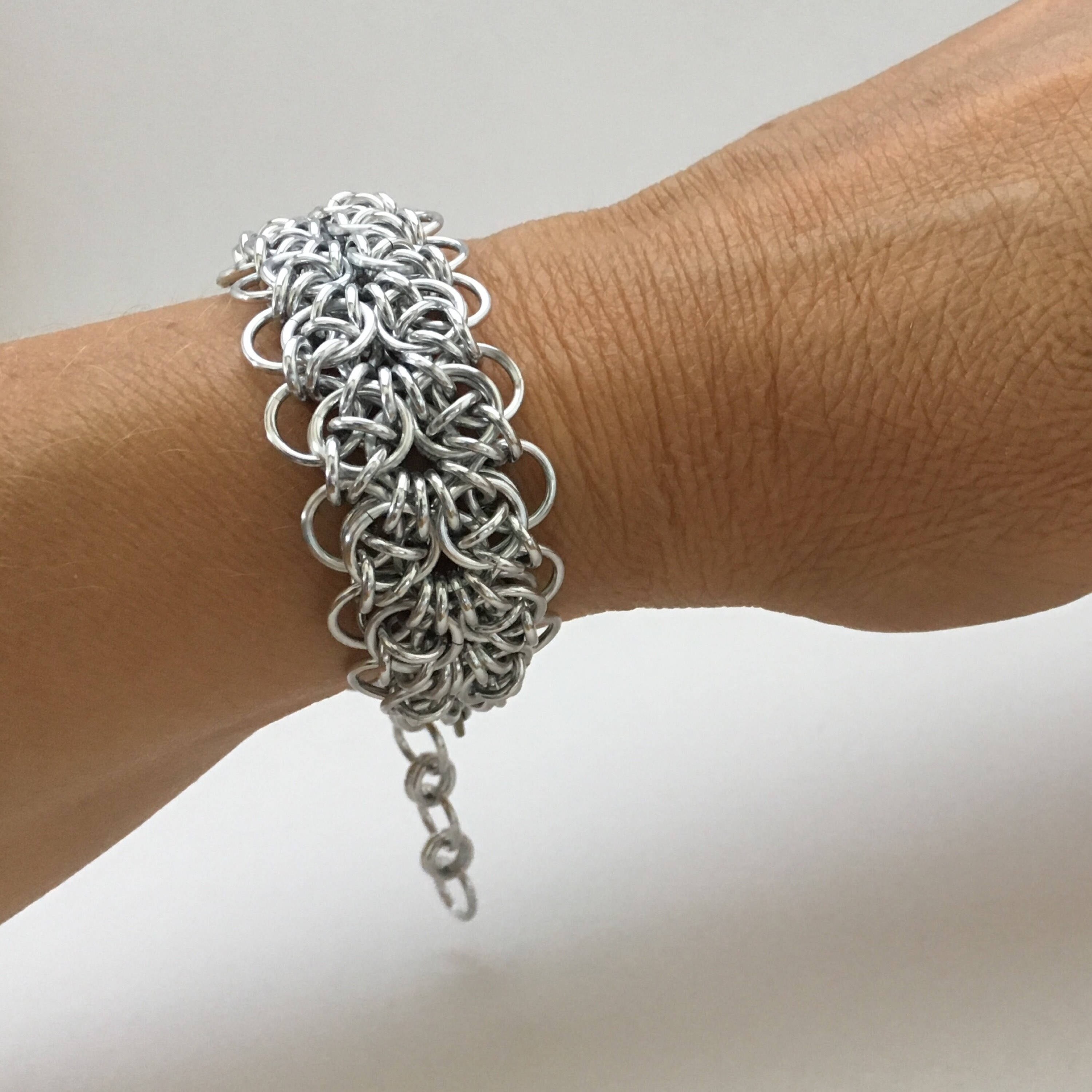Chainmaille
What is Chainmaille?
Chainmaille (also known as chainmail, or simply maille) is typically armor or jewelry made by connecting metal rings to one another. The word maille derives from the French word maille (mesh), which comes from Latin macula (mesh of a net). Creating something out of maille involves a few steps:
- Wrap metal wire around a rod to make a coil.
- Cut the coil, creating individual "jump rings."
- Using pliers, link the rings—one at a time—into a pattern.
Chainmaille is one of the earliest forms of metal armor. The oldest piece of maille armor that can be accurately dated is more than 2,700 years old. It was discovered in the graves of Celtic warriors. Earlier evidence of chainmaille has been found in graves from the 5th century BC in Scythia (an area between Europe and Asia). Although most historical chainmaille is armor, jewelry techniques were also used by cultures as diverse as the Vikings and the ancient Egyptians. It is difficult to trace the history of chainmaille, because much of the "evidence" was destroyed in battle. Many pieces that survive today may have been high-quality pieces passed on from generation to generation (or even stolen from a corpse after a battle). These may or may not be a good sampling of the most common maille used. Read more about the history of chainmaille at Wikipedia.




.png)
Maille has become increasingly popular in recent years. Some artists
make armor to use in staged battles. Others prefer to create chainmaille
jewelry, and still others make sculptures. The versatility of this
medium is astounding; artists have created chessboards, belts, dresses,
baskets and even sunglass lenses (see closeup)—all out of maille.
Chainmaille can be made from virtually any material that can be formed
into a circle. This includes most metals as well nontraditional jewelry
materials such as rubber.
The number of known patterns is impressive: More than 1,000 weaves are
documented on
M.A.I.L. (Maille Artisans International League).
Most of these modify basic patterns, but each weave is distinct. Today's
weavers still create new patterns, from simple chains to intricate,
fabric-like sheets.




Information from: Blue Buddha Boutique.